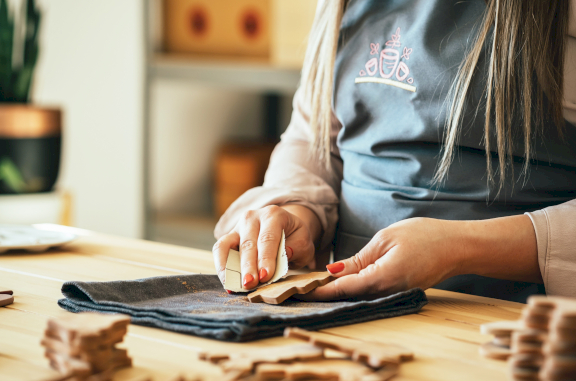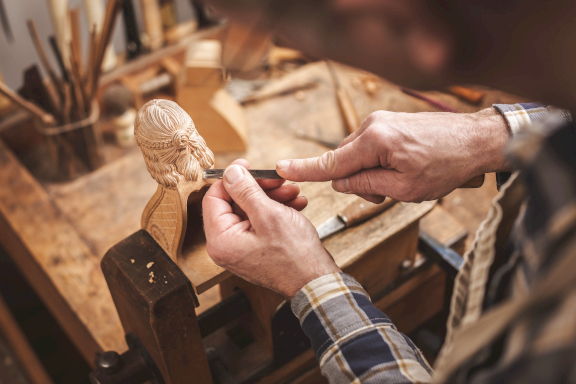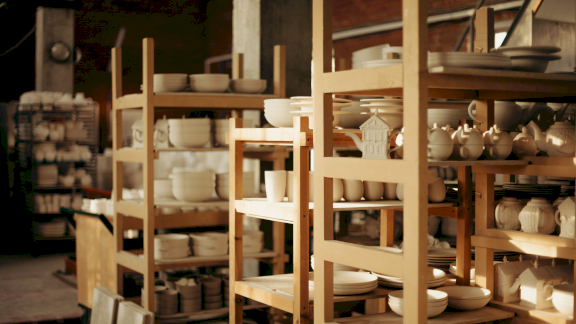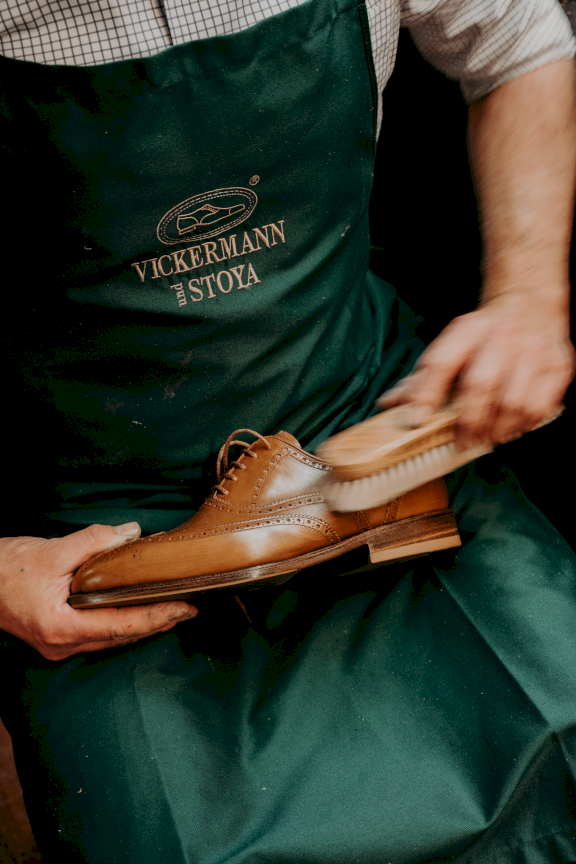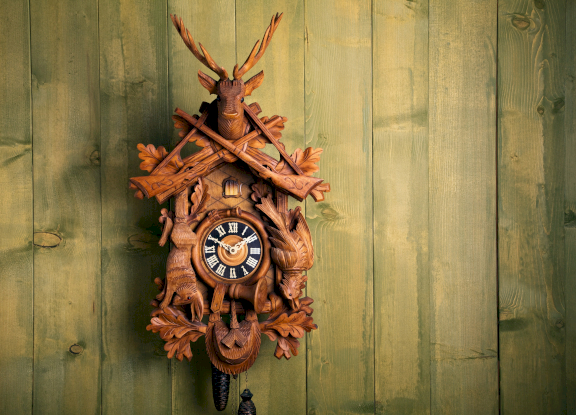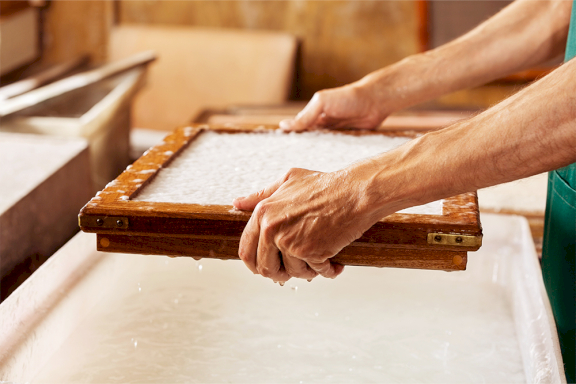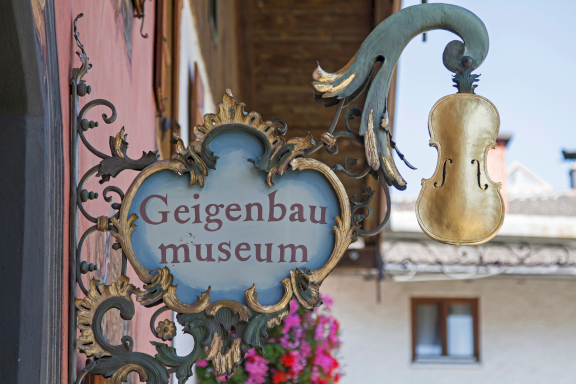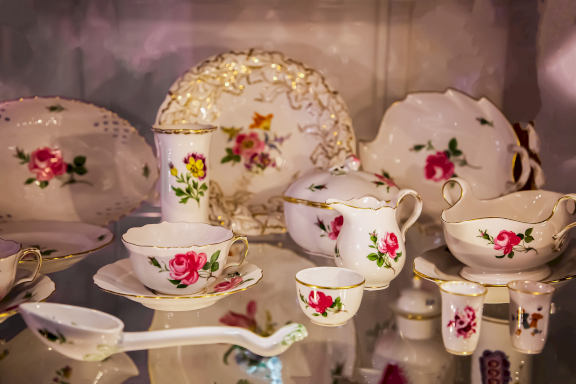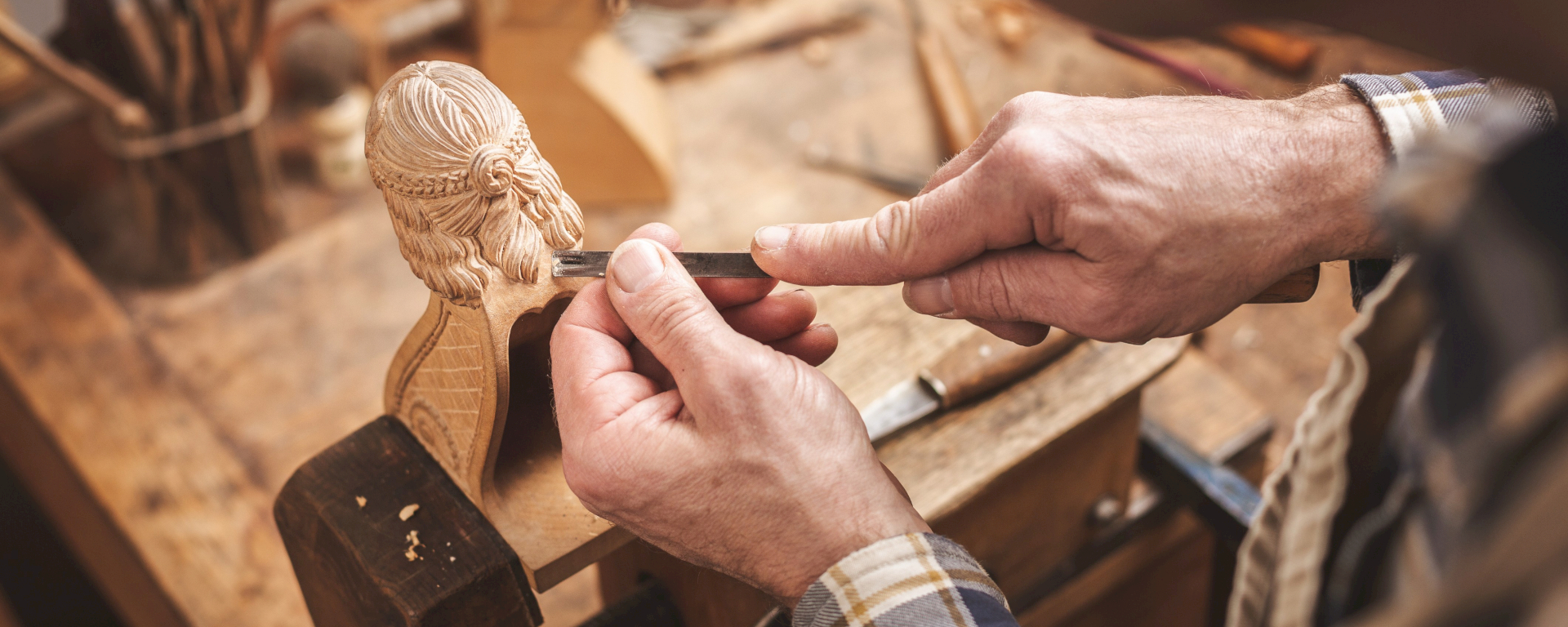
Craftsmanship
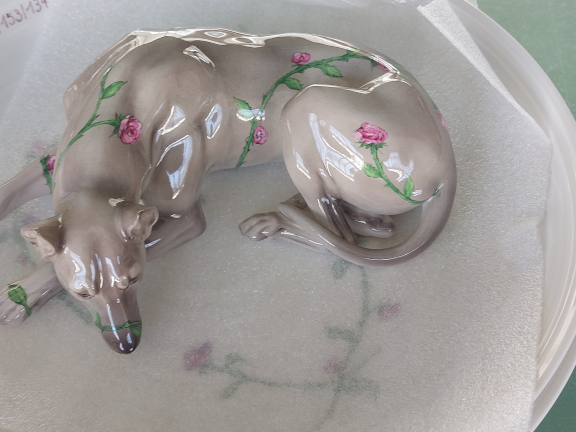
Craftsmanship Handmade quality goods
„Made in Germany“ is a globally recognized quality feature. Germany has a long history of design culture and its goods are in demand all over the world, thanks to their unique appearance, utility value & quality craftsmanship. To this day, there are still traditional craftsmanship companies that make their own products, be it porcelain or musical instruments, with the aim of delivering the highest quality. Many of them offer visitors the opportunity to take a look around their workshops to gain a deeper insight into their craftsmanship.
